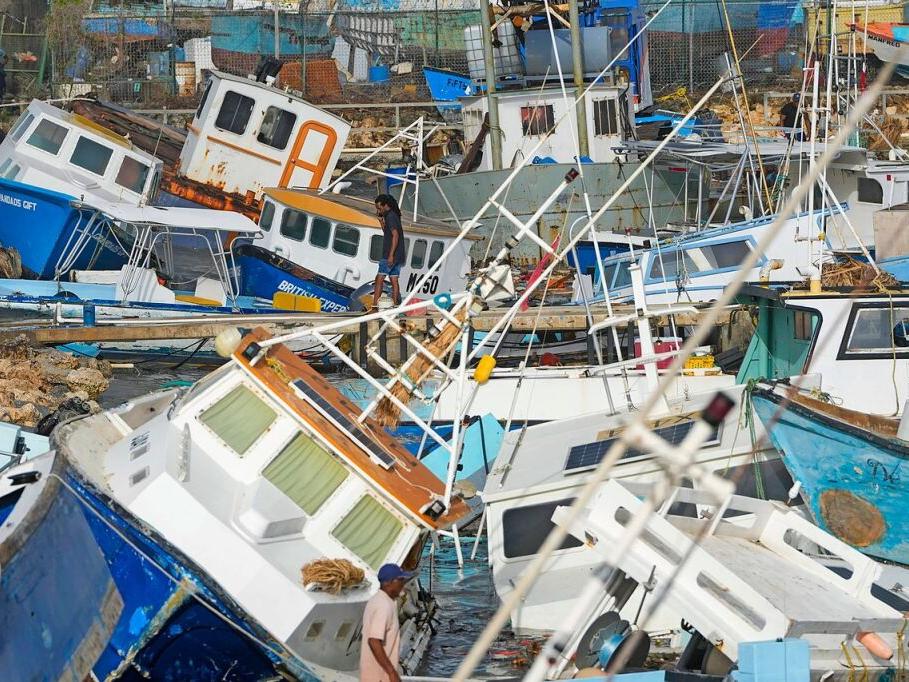Hurricane Beryl, now a catastrophic Category 5 storm with winds up to 165 mph (265 km/h), continues to wreak havoc across the Caribbean. The storm has shattered records, becoming the earliest Category 5 hurricane in Atlantic history, a development climate experts attribute to extremely warm sea temperatures and climate change.After making landfall on the island of Carriacou in Grenada, Beryl has left a trail of destruction across several Caribbean islands. The death toll has risen to at least two, with extensive damage reported in Grenada, Saint Vincent and the Grenadines, and Saint Lucia. Prime Minister Dickon Mitchell of Grenada described the damage as ‘catastrophic’, with reports of widespread destruction, power outages, and communication disruptions.The storm is now heading towards Jamaica and the Cayman Islands, where hurricane warnings and watches are in effect. The National Hurricane Center (NHC) warns that Beryl will still be near major hurricane strength when it passes near Jamaica on Wednesday and the Cayman Islands on Thursday. Rainfall totals of 3 to 6 inches are expected across affected areas, with up to 10 inches possible in some regions, raising concerns about flash flooding and landslides.As Beryl continues its west-northwestward trajectory, it’s projected to approach Mexico’s Yucatan Peninsula by late Thursday, potentially as a Category 1 or 2 hurricane. The Mexican government has issued warnings for the states of Quintana Roo and Veracruz, and has activated emergency response teams.The World Meteorological Organization (WMO) has stated that Beryl ‘sets an alarming precedent for what is expected to be a very active hurricane season’. This unprecedented early-season intensity underscores the growing impact of climate change on tropical weather systems.
Key points
- Hurricane Beryl has strengthened to a Category 5 storm, the earliest on record in the Atlantic.
- At least two deaths have been reported, with extensive damage across multiple Caribbean islands.
- The storm is heading towards Jamaica and the Cayman Islands, with hurricane warnings in effect.
- Climate experts attribute the storm’s unprecedented early-season intensity to climate change and warm sea temperatures.
Contradictions👾There are slight discrepancies in the reported wind speeds, with some sources citing 160 mph and others 165 mph.



